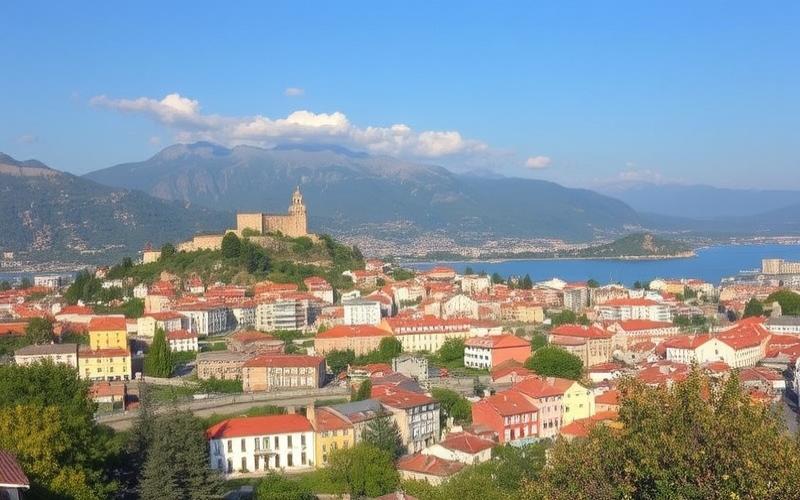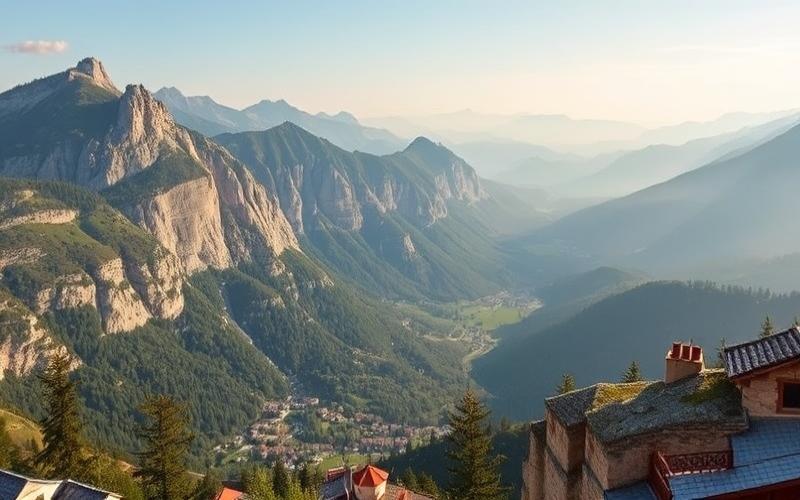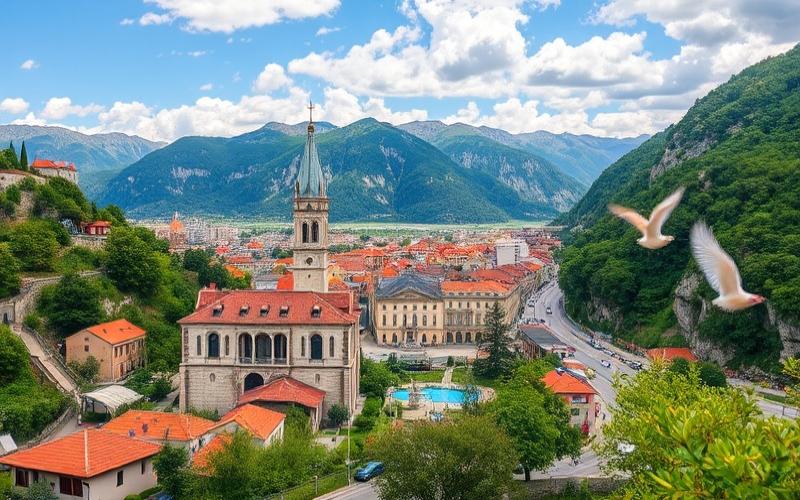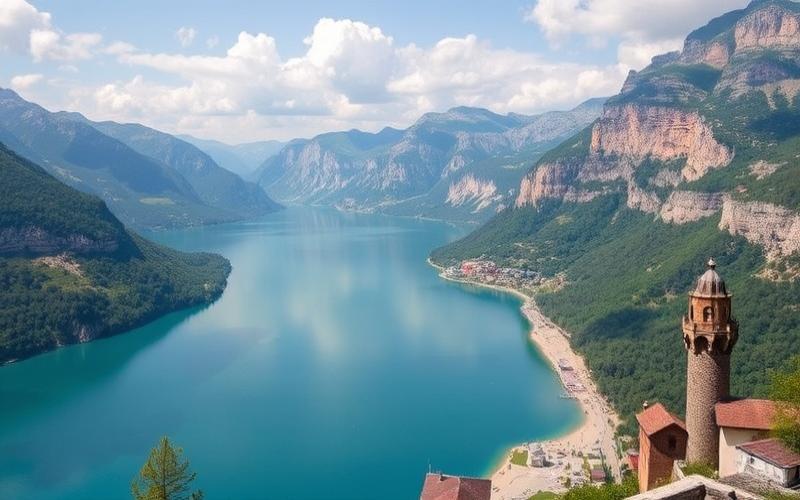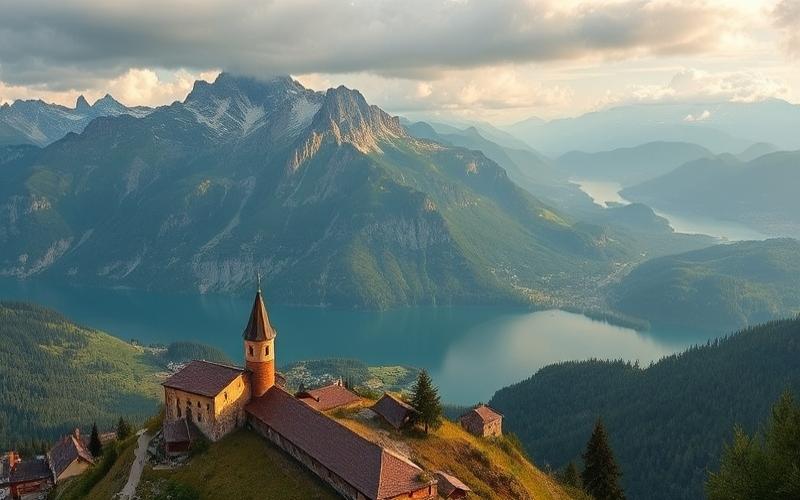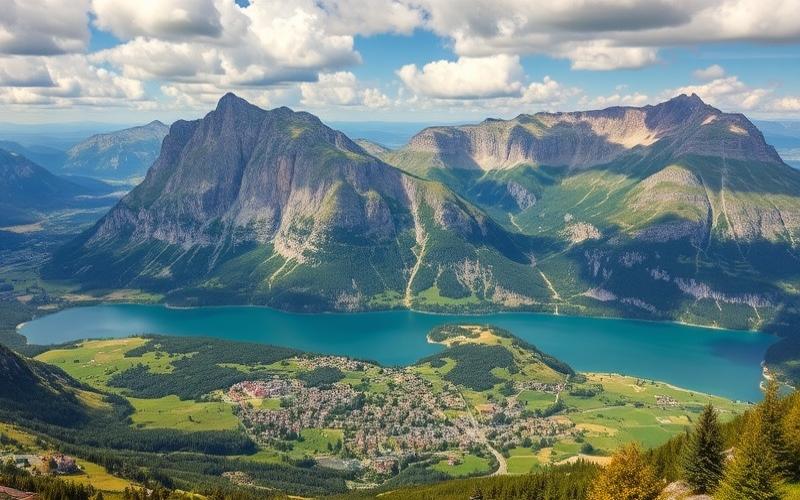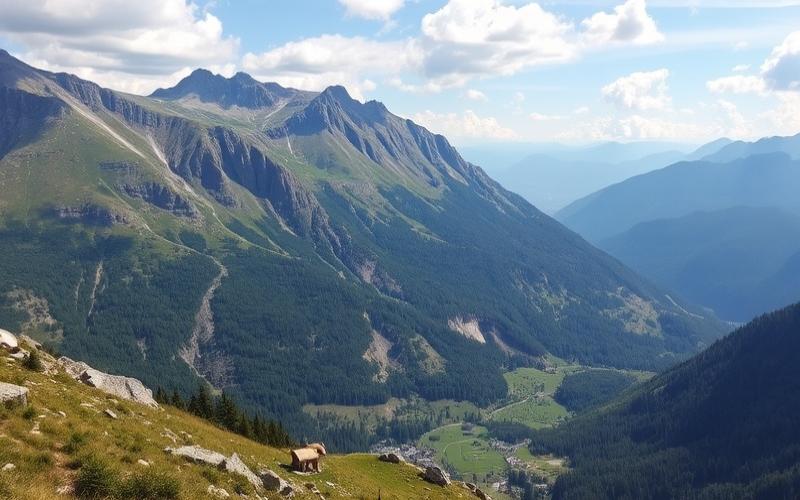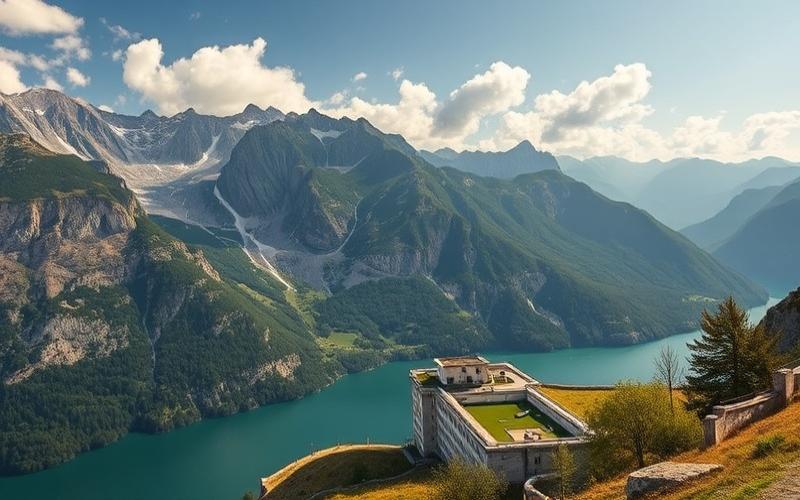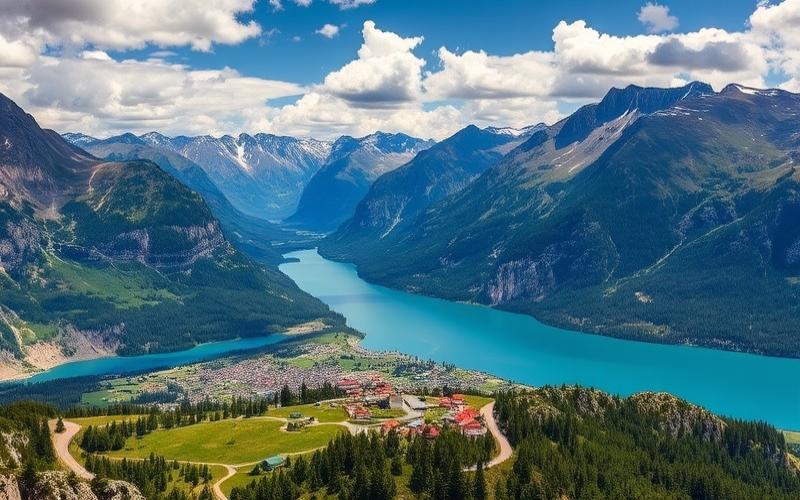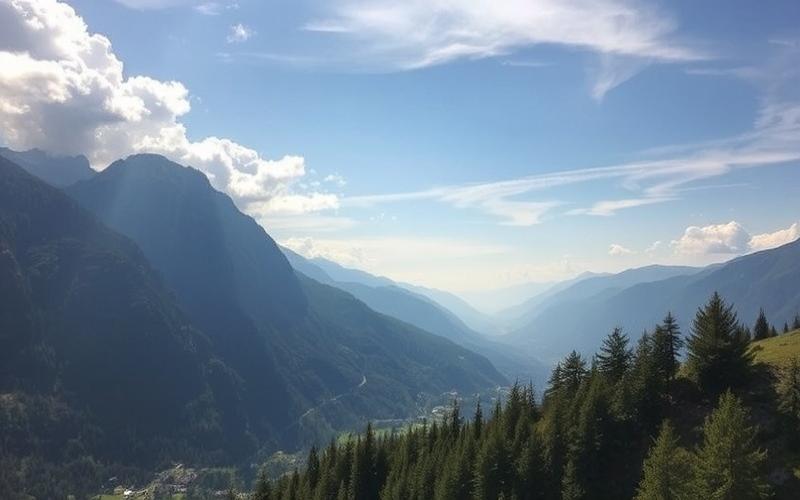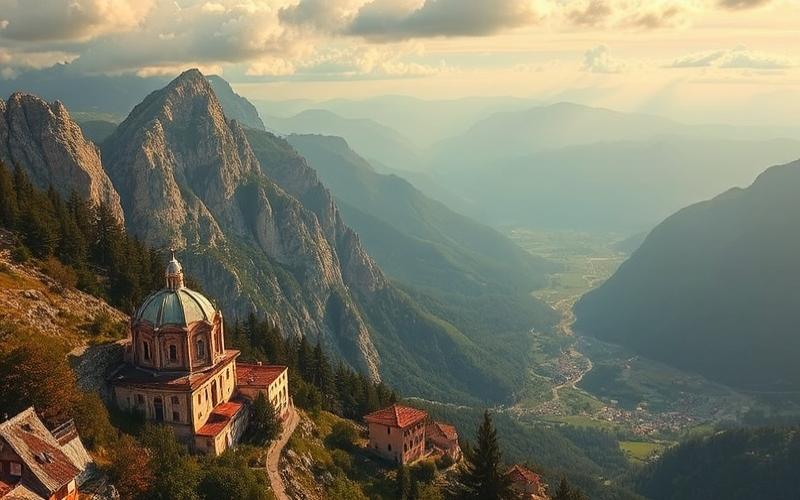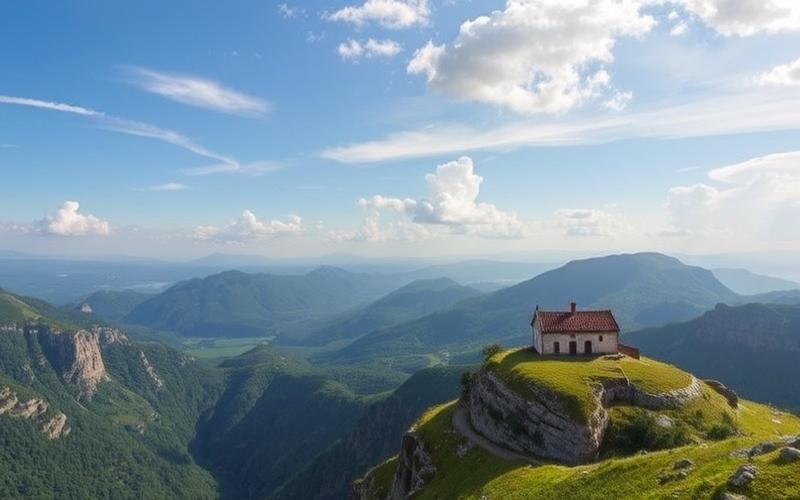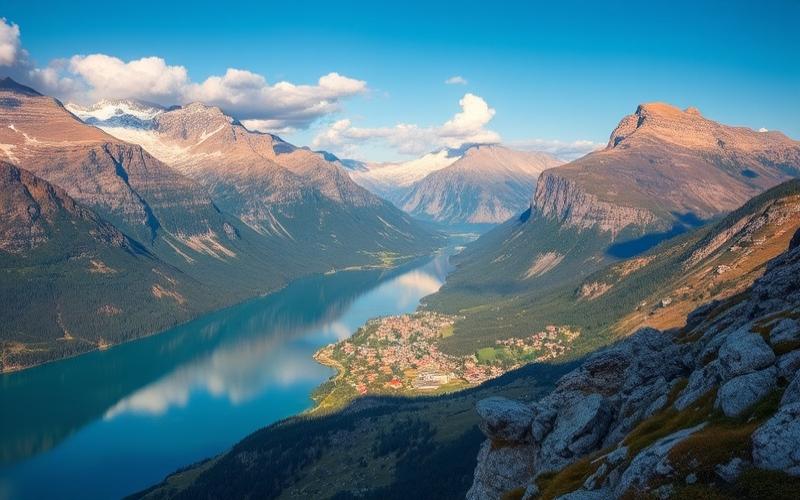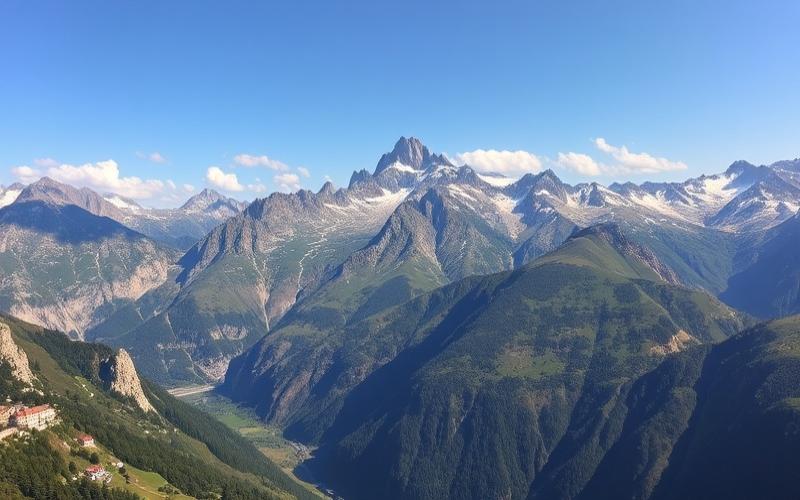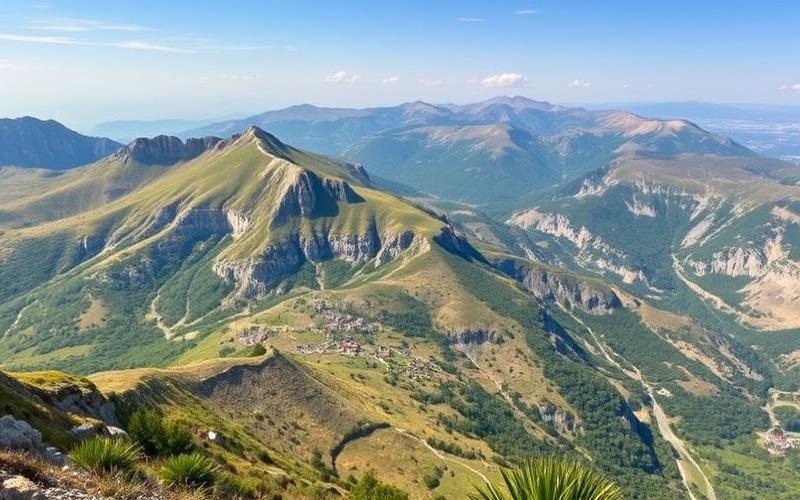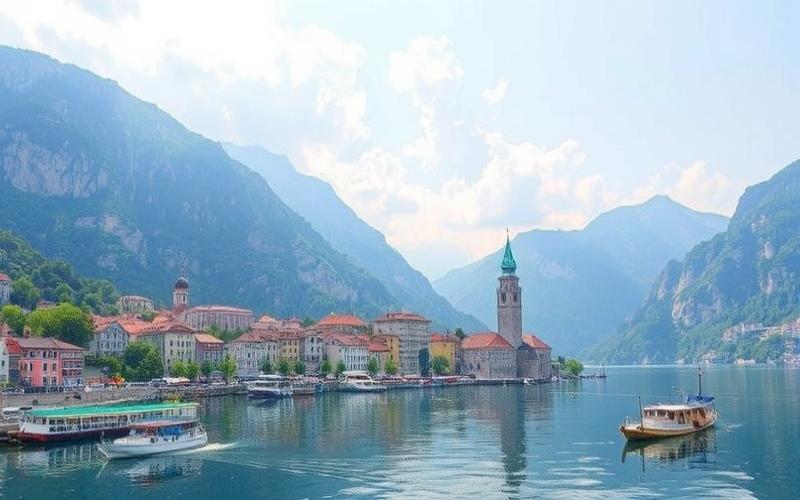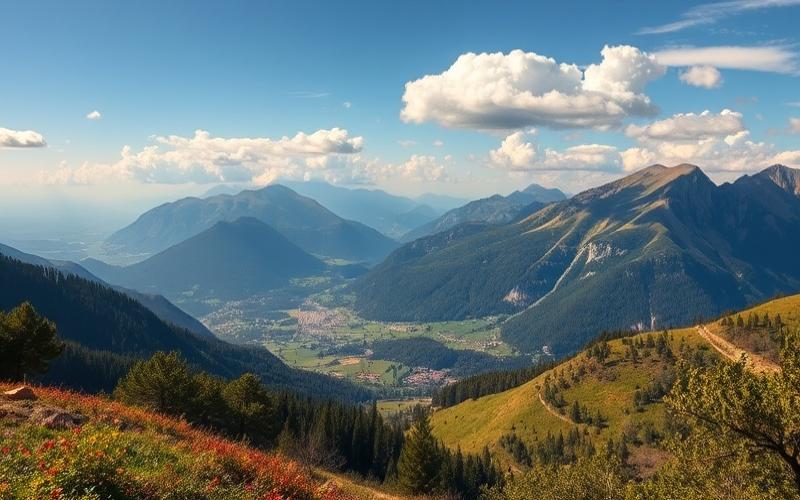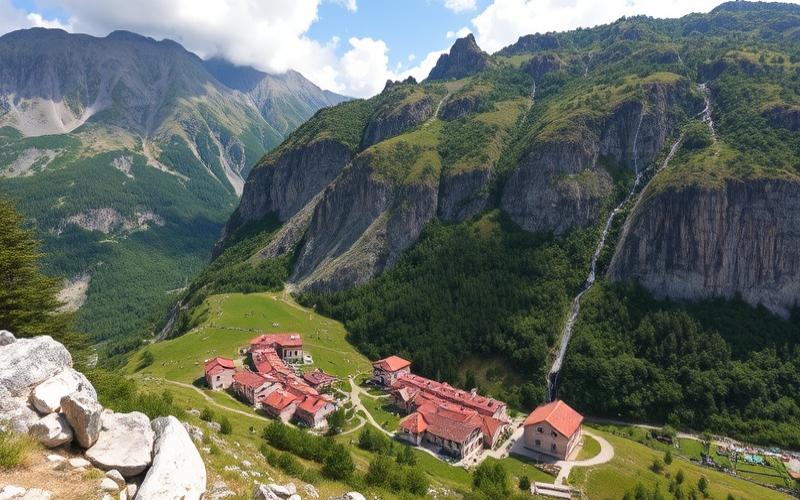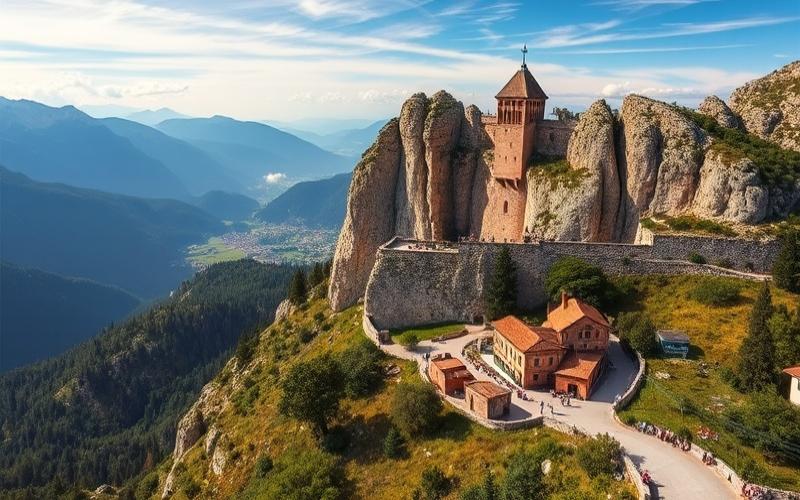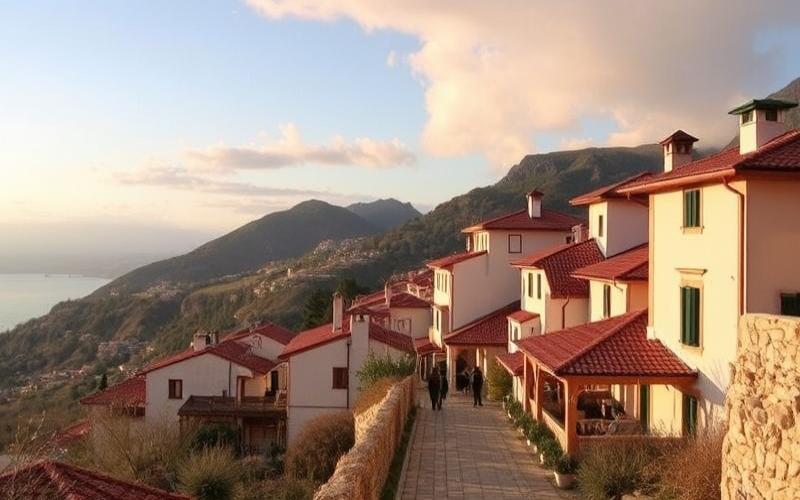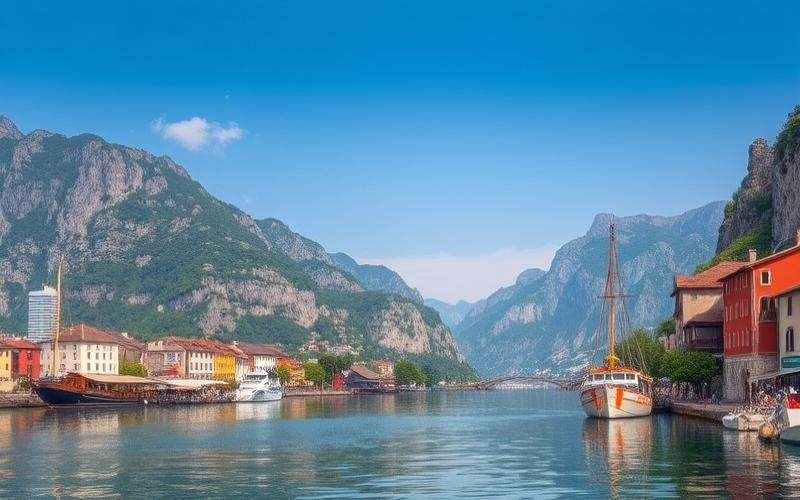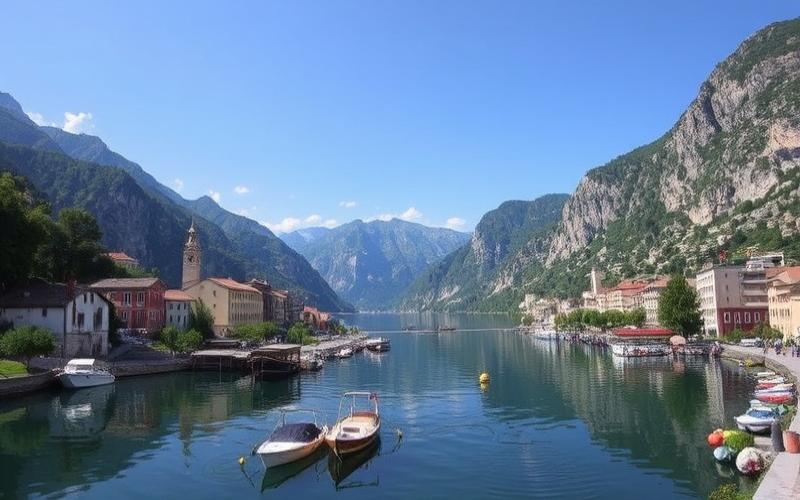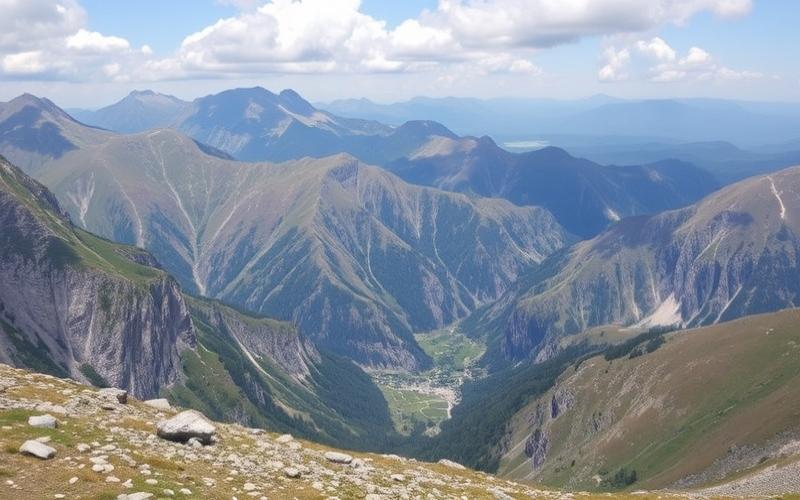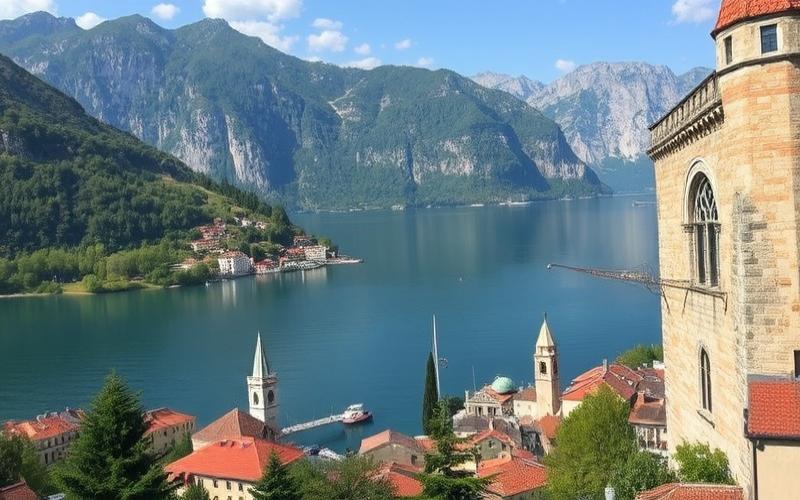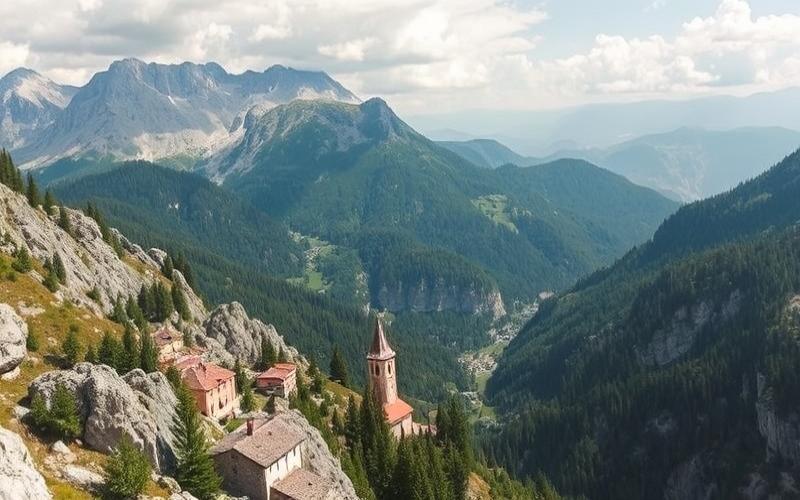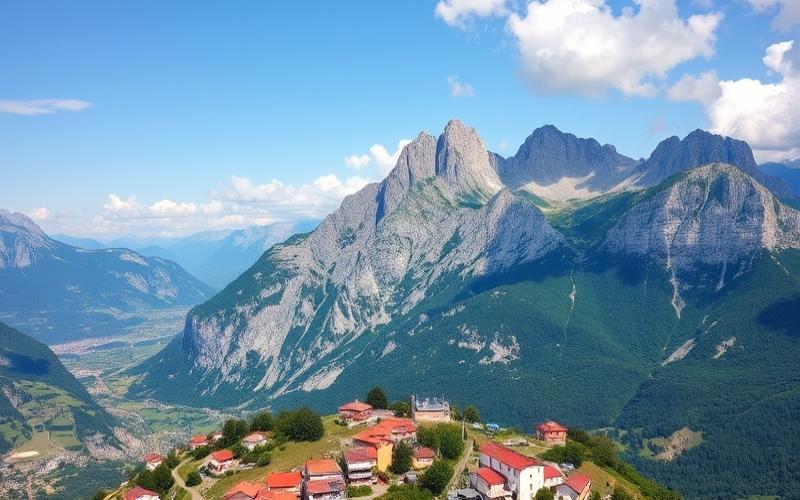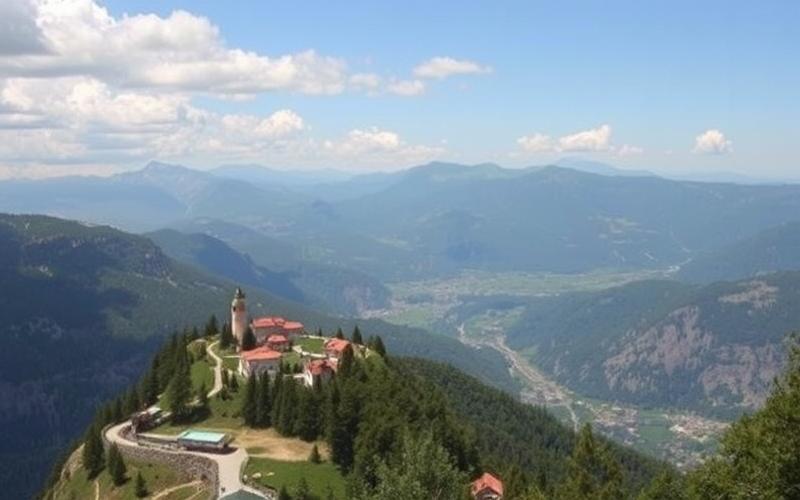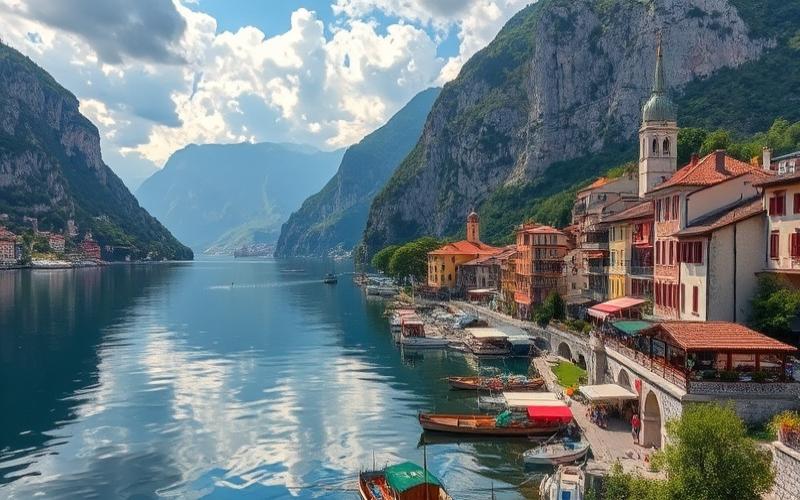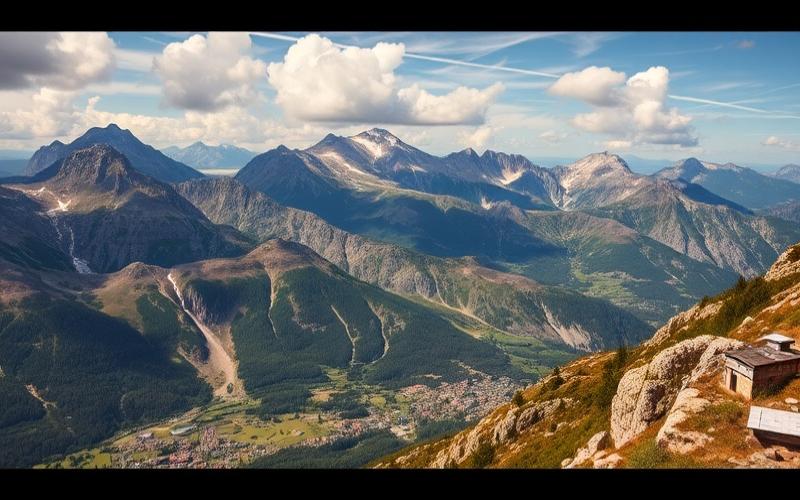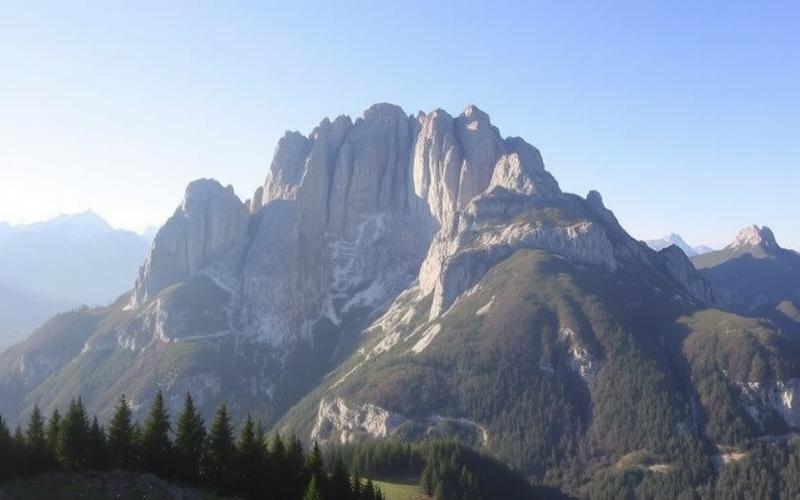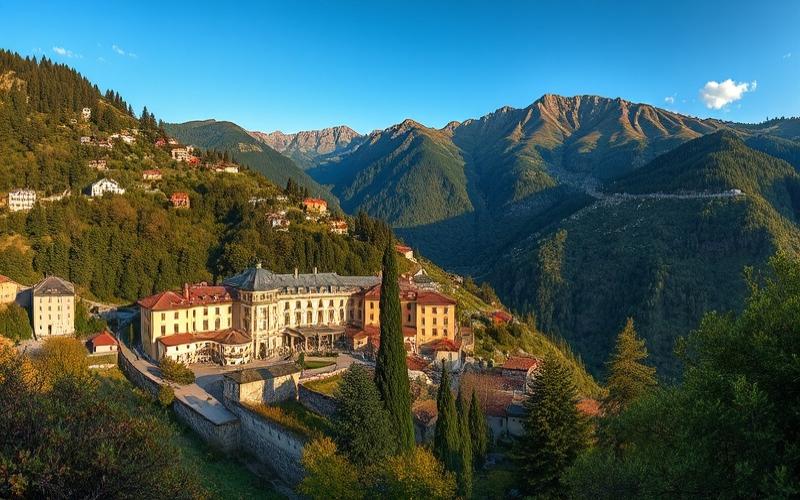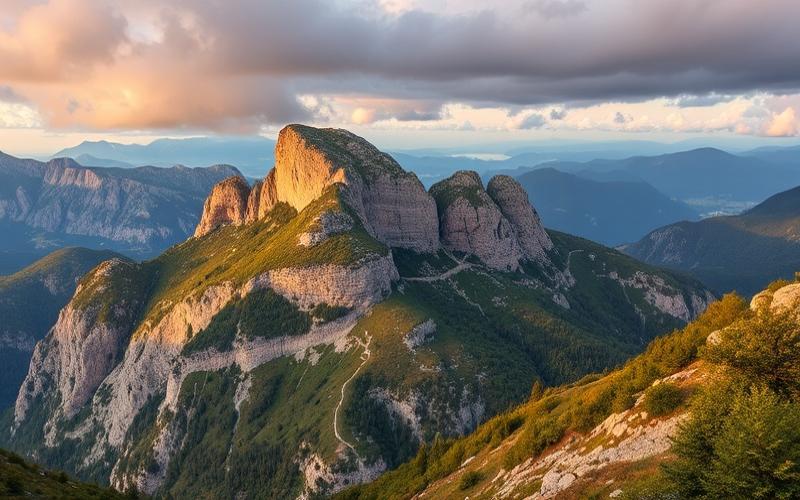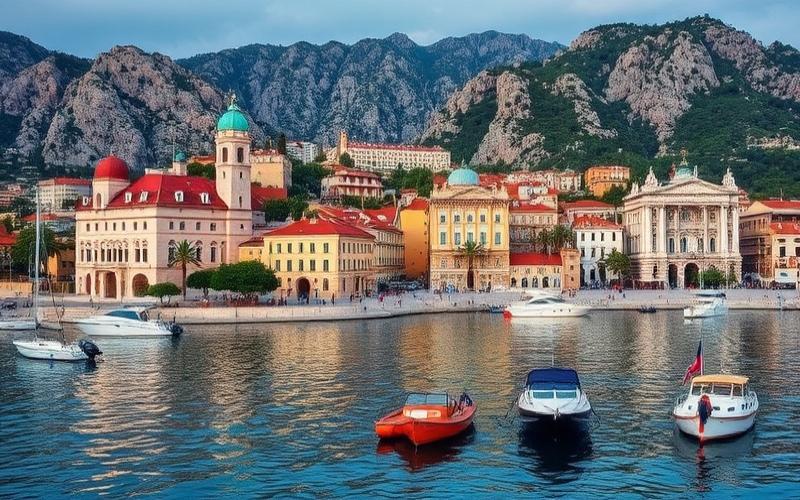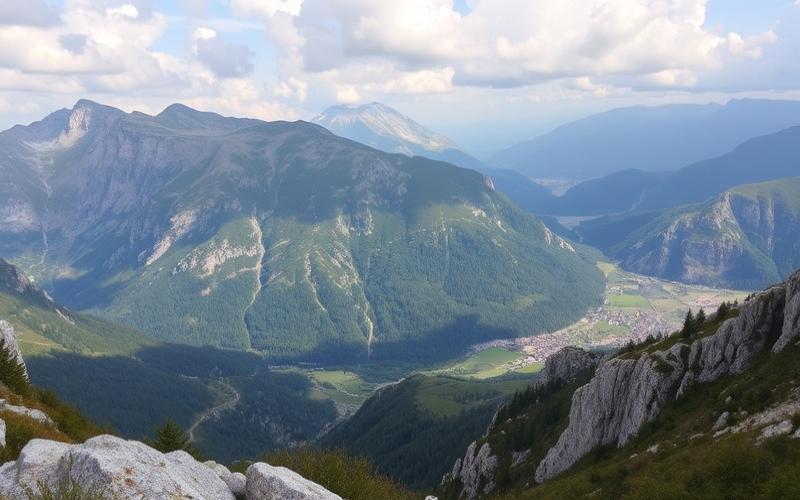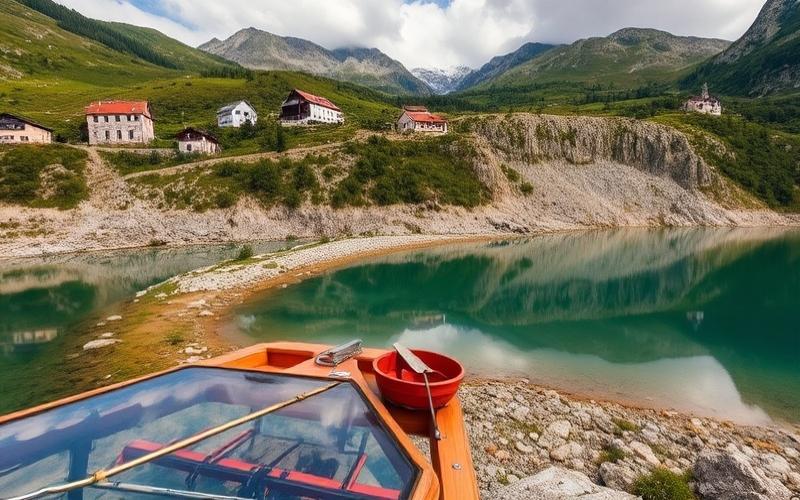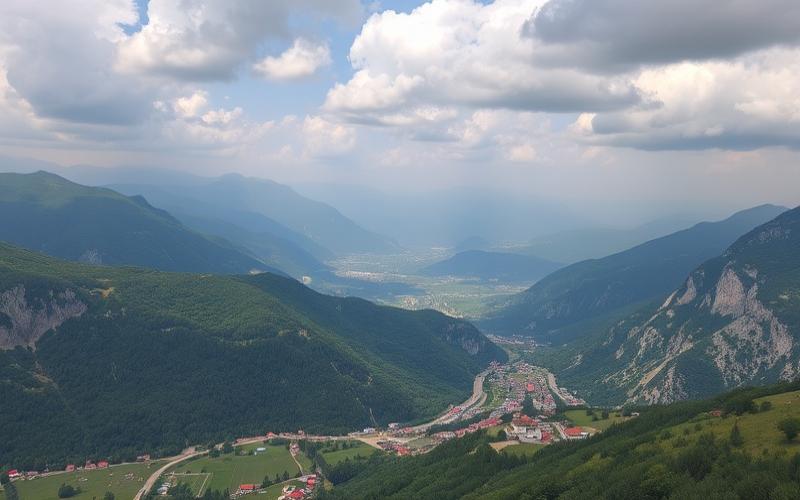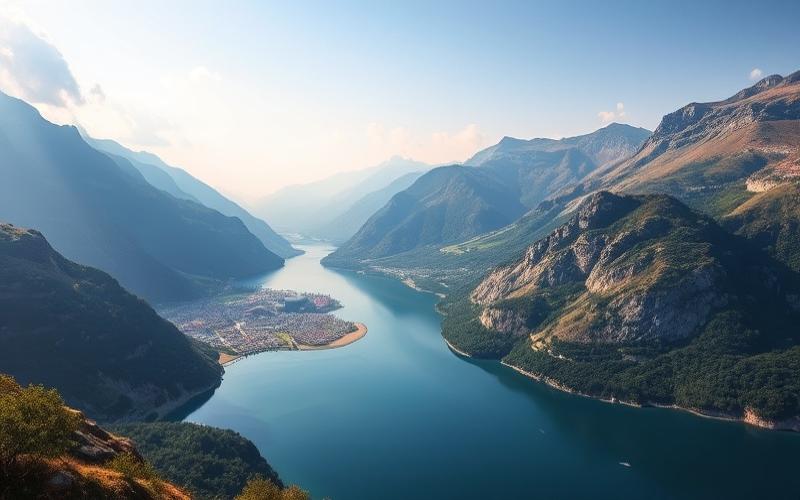
 Published on and written by Cyril Jarnias
Published on and written by Cyril Jarnias
Montenegro, with its picturesque landscapes and growing real estate market, is attracting an increasing number of foreign investors. Renovating a property in this Balkan country can be an excellent strategy to increase its value and fully leverage its potential. Whether you’ve recently acquired a property or want to modernize your existing residence, renovation is an effective way to maximize your investment while creating a comfortable and attractive living space.
The Montenegrin real estate market offers excellent opportunities for savvy investors. With square meter prices ranging between €1,500 and €2,500 on average, and estimated annual real estate price growth potential of 3% to 5%, now is the ideal time to invest in renovation. Additionally, the country benefits from a favorable tax environment, with relatively low annual property taxes, typically between 0.1% and 1% of the property’s value.
Renovating a property in Montenegro can not only increase its market value but also enhance its rental appeal. With rental yields reaching up to 7% annually and average daily rents ranging between €50 and €150, a well-renovated property can become a substantial source of income, whether for long-term rental or the expanding tourist market.
Key Steps for a Successful Renovation in Montenegro
Undertaking a renovation in Montenegro requires careful planning and a thorough understanding of the local market. Here are the essential steps to successfully complete your project:
1. Assessment and Planning
Before starting any work, it’s crucial to conduct a detailed assessment of your property. Hire local professionals to inspect the structure, electrical systems, and plumbing. This step will help you identify priorities and establish a realistic renovation plan.
Consider local architectural specifics, especially if your property is located in a historic area like the UNESCO World Heritage site of Kotor’s Old Town. It’s important to respect local heritage preservation regulations.
2. Obtaining Necessary Permits
The administrative system in Montenegro can be complex for foreigners. Make sure to obtain all required permits and authorizations before starting work. This may include building permits for significant structural modifications or special permissions for properties located in protected areas.
3. Professional Selection
Choosing the right craftsmen and contractors is crucial for your project’s success. Prioritize local professionals who are familiar with the country’s standards and materials. Don’t hesitate to request references and visit ongoing construction sites to assess their work quality.
4. Work Execution
Once preparations are complete, the actual renovation phase can begin. Ensure regular supervision of work progress, either personally or by appointing a local project manager if you cannot be present on-site.
5. Quality Control and Finishing
As the construction site nears completion, pay particular attention to finishing details. The quality of details can make all the difference in the overall perception of your renovated property. Plan a thorough final inspection to ensure all work has been completed according to agreed standards.
Good to Know:
Renovating a property in Montenegro requires a methodical approach, from planning to execution. By following these steps and surrounding yourself with competent professionals, you’ll maximize your project’s success chances and your investment’s value.
Optimizing Your Budget and Financing Your Renovation
Financial management is a crucial aspect of any renovation project, particularly in an international context. In Montenegro, it’s essential to adopt a strategic approach to optimize your budget and explore available financing options.
Establishing a Realistic Budget
Start by establishing a detailed budget that accounts for all renovation aspects. Include a safety margin of at least 10% to 15% to handle unexpected issues, which are common in renovation projects, especially in a foreign country where you might encounter surprises related to local standards or the property’s actual condition.
Consider Montenegro-specific costs, such as import fees for certain materials or equipment that might not be available locally. Labor costs in Montenegro are generally lower than in many Western countries, which may allow you to allocate a larger portion of your budget to quality materials.
Financing Options
Several options are available to finance your renovation project in Montenegro:
- Local mortgage loans: Montenegrin banks offer loans to foreigners, typically up to 60-70% of the property’s value. However, interest rates may be higher than what you’re accustomed to in your home country.
- International financing: Consider obtaining a loan in your home country, where you might benefit from better terms, especially if you have a good credit score.
- Refinancing: If you already own the property, refinancing can be an option to free up funds for renovation.
- Equity investment: Using your savings might be the simplest solution, avoiding complications related to international loans.
Tax Optimization
Research potential tax benefits related to property renovation in Montenegro. Although the country doesn’t currently offer specific tax deductions for renovations like some European countries, the generally low property taxation (between 0.1% and 1% of the property’s value per year) makes investment attractive.
Additionally, if you plan to rent your renovated property, note that rental income in Montenegro is subject to relatively low tax rates, which can improve your investment’s overall profitability.
Cost Management During Renovation
To control your expenses throughout the project:
- Obtain multiple quotes for each major renovation aspect.
- Negotiate clear contracts with payment schedules linked to work progress.
- Consider purchasing certain materials yourself to avoid contractor markups.
- Closely monitor expenses and adjust your budget if necessary.
Good to Know:
Careful financial planning is essential for a successful renovation in Montenegro. By combining a realistic budget, appropriate financing options, and rigorous cost management, you can maximize your investment value while minimizing financial risks.
Selecting Ideal Materials for Your Montenegrin Renovation
Material selection is a crucial aspect of any renovation, and this is particularly true in Montenegro, where the Mediterranean climate and local architectural traditions play an important role. Choosing the right materials can not only enhance your property’s aesthetics and functionality but also increase its long-term value.
Traditional vs. Modern Materials
Montenegro is known for its traditional architecture, characterized by the use of local stone and wood. However, integrating modern materials can bring comfort and energy efficiency to your renovated property.
- Stone: Local stone remains a popular choice, particularly for facades and exterior walls. It offers excellent thermal insulation and integrates perfectly into the Montenegrin landscape.
- Wood: Wood is widely used for frames, floors, and joinery. Opt for local species treated against moisture and insects.
- Modern materials: Using materials like glass, steel, and composites can bring a contemporary touch while improving the building’s energy performance.
Energy Efficiency and Sustainability
With growing environmental awareness, investing in eco-friendly and energy-efficient materials can significantly increase your property’s value. Consider the following options:
- Insulation: Use high-performance insulation materials for walls, roofs, and windows. This will reduce heating and cooling costs.
- Double-glazed windows: Essential for energy efficiency, they’re particularly important in coastal areas where temperature variations can be significant.
- Heating and cooling systems: Opt for modern, energy-efficient systems like heat pumps or solar panels, increasingly popular in Montenegro.
Local Sourcing vs. Importation
Although the local market offers a variety of construction materials, certain specific products may require importation. Weigh the pros and cons:
- Local materials: Often cheaper and easier to obtain, they naturally integrate into the local environment. Plus, their use supports the Montenegrin economy.
- Imported materials: May offer superior quality or options not available locally, but be mindful of additional costs and delivery times.
Adaptation to Mediterranean Climate
Montenegro’s climate, characterized by hot summers and mild to cold winters depending on altitude, requires adapted materials:
- UV and moisture-resistant exterior coatings for facades exposed to sun and sea.
- Roofing materials capable of withstanding heavy winter rains, like terracotta tiles or slates.
- Effective drainage systems to handle intense precipitation.
Compliance with Local Standards
Ensure all materials used comply with Montenegrin construction standards. This is particularly important if you’re renovating a property in a historic or protected area, where specific restrictions may apply.
Good to Know:
The wise selection of materials for your renovation in Montenegro should combine local tradition, energy efficiency, and adaptation to the Mediterranean climate. By prioritizing quality and durable materials, you’ll not only increase your property’s value but also create a comfortable, environmentally respectful living space.
Maximizing Your Investment Potential
Renovating a property in Montenegro isn’t just about aesthetic or functional improvement; it’s also an opportunity to maximize your investment potential. By adopting a strategic approach, you can significantly increase your property’s value and optimize its return, whether for personal use or rental purposes.
Targeting High-Impact Improvements
Certain renovations offer better return on investment than others. In Montenegro, the following improvements are particularly valued:
- Kitchen and bathroom modernization: These rooms are crucial for a property’s value. Investing in modern equipment and quality finishes can significantly increase your property’s appeal.
- Creating outdoor spaces: In a country known for its Mediterranean climate, well-designed terraces, balconies, or gardens are highly sought after.
- Energy efficiency improvements: Installing modern heating and cooling systems, along with improved insulation, can reduce operating costs and increase property value.
- Preserving traditional architectural elements: In historic areas like Kotor, restoring original elements can significantly enhance your property’s value.
Adapting Renovation to Target Market
Consider your property’s future use to guide your renovation choices:
- For personal residence: Focus on comfort and personal preferences, while keeping long-term value in mind.
- For seasonal rental: Prioritize arrangements attractive to tourists, like authentic local decor or recreational equipment.
- For long-term rental: Opt for durable, easy-to-maintain finishes and functional spaces adapted to daily living.
Optimizing for Rental Market
If your goal is to rent your property, certain specific considerations can maximize your return on investment:
- Layout flexibility: Create versatile spaces that can adapt to different tenant types.
- Modern amenities: Installing recent appliances and high-speed internet can justify higher rents.
- Security: Invest in modern security systems, particularly appreciated by foreign tenants.
Legal and Tax Considerations
A well-planned renovation can also offer tax and legal advantages. In Montenegro:
- Owners renovating historic properties may sometimes benefit from tax incentives or grants.
- A significant renovation may allow you to obtain a residence permit if the total investment exceeds certain thresholds.
- Energy improvements may make you eligible for government energy efficiency programs.
Tracking and Documentation
Keep detailed records of all improvements made to your property. This documentation will be valuable for:
- Justifying a property value increase during a potential resale.
- Demonstrating work quality and compliance to future buyers or tenants.
- Facilitating tax declarations and permit applications.
Good to Know:
Maximizing your real estate investment potential in Montenegro requires a strategic approach to renovation. By targeting high-impact improvements, adapting your project to the target market, and considering legal and tax aspects, you can significantly increase your property’s value and appeal.
Conclusion: Transforming Your Vision into Reality
Renovating a property in Montenegro represents a unique opportunity to create an exceptional living space while making a wise investment. By following key steps, effectively managing your budget, and choosing appropriate materials, you can not only increase your property’s value but also contribute to preserving the country’s rich architectural heritage.
The Montenegrin real estate market, with its stable growth and booming tourism potential, offers fertile ground for savvy investors. Whether you plan to use your property as a personal residence, seasonal rental, or long-term investment, a well-thought-out renovation can significantly increase its appeal and profitability.
Remember that each renovation project is unique and requires a personalized approach. By surrounding yourself with competent local professionals, respecting local regulations, and remaining faithful to the spirit of the place, you can create a space that harmoniously combines traditional Montenegrin charm with modern comforts.
Finally, keep in mind that renovating a property in Montenegro isn’t just a financial investment; it’s also an immersion into this beautiful country’s culture and lifestyle. It’s an opportunity to create lasting bonds with the local community and positively contribute to the region’s sustainable development.
Disclaimer: The information provided on this website is for informational purposes only and does not constitute financial, legal, or professional advice. We encourage you to consult qualified experts before making any investment, real estate, or expatriation decisions. Although we strive to maintain up-to-date and accurate information, we do not guarantee the completeness, accuracy, or timeliness of the proposed content. As investment and expatriation involve risks, we disclaim any liability for potential losses or damages arising from the use of this site. Your use of this site confirms your acceptance of these terms and your understanding of the associated risks.

